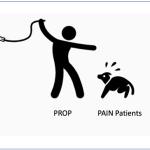Depending upon when you are reading this, Laurie Engel, a long-time chronic pain patient, may or may not be alive; she has been given about six months to live because of an aggressive, deadly cancer that has now invaded her spine.
PROP
Join Cameron English and Dr. Chuck Dinerstein as they examine a case of opioid research with "a side of corruption" on Episode 62 of the Science Dispatch podcast:
“The world’s largest review on opioid medicines for cancer pain has found it is unclear whether some commonly used opioid medicines are better than a placebo and suggests that nonopioid medicines, including aspirin, may b
Last I counted I had 4,682 saved emails from Dr. Richard "Red" Lawhern. Let's double that to include the ones I didn't save. 9,000 emails from someone I've never met in person. Sounds like a stalker, right?
A recent perspective piece in the Washington Post is a must-read for anyone who wants to understand the so-called "opioid epidemic."&nb
Although it took four years, the American Medical Association's 202
It's too little and far too late, but the FDA appears to be acting to correct the ignorance and ineptitude that was shoved down the collective throats of America's pain patients in the form of the
Good Morning PROP members (1). Did you sleep well? I sure hope so, but if not, it's understandable.
I've written more than 75 articles about the travesty that is now our drug "policy." Many of them can be found on the ACS












